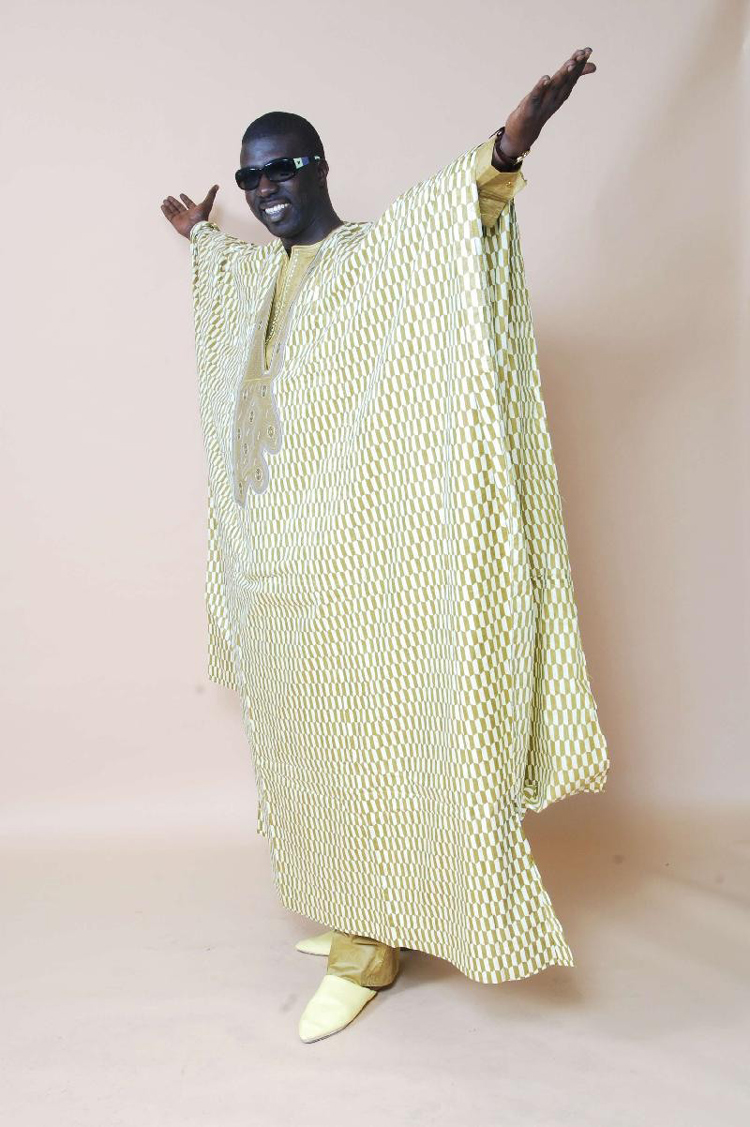Fallou Dieng is the elder statesman of the new generation of Senegalese artists emerging from the long shadows and rich legacy left by the country’s most famous artist, Youssou N’Dour. Known as le Roi de l’ambiance for creating some of Dakar’s more outrageously provocative mbalax dances, he is perhaps the best known and most popular of the “Youngsters”.
Born in Dakar in 1960, at the dawn of Senegal’s independence, Fallou knew he was destined for success from an early age, and his international debut CD, Medina, is a testament not just to his formidable talent but also to his own steadfast independence.
Medina was compiled from four locally released cassettes spanning a four-year periodboth as a songwriter and as a musician. Barsane, the first recording with his band, the DLC, remains one of finest Senegalese cassette releases of the 1990s, and launched his career. Beusseum-Bi, Biri Biri and Weex Bet all followed to critical acclaim and growing popular adulation.
At the beginning of 1993, Fallou was still a man of modest means and limited resources, and would need help forming his own band and recording the first record. A little support and encouragement from his old Medina neighbor and mentor, Youssou N’Dour and his business
partner, Cheikh Tall Dioum, helped considerably. Fallou grabbed his chance, and the DLC band was born, named in recognition of his benefactors. DLC (Dakar Loisir Club) was the name Youssou and Dioum gave the old Thiossane nightclub when they took it over. Old habits
die hard, and Dakar’s clubbers still use the original name.
The musicians gathered were all aged between 18 and 25: Assane Seck on lead Guitar, Cheikh T. Dieng (rhythm guitar), Nguido Ba (bass), Abdourahmane Cisse (keyboards) Pape Thiopet Ndiaye (sabar/percussion) and Sam Thiam (tama-talking drum).
For the first recording Pape Oumar Ngom (Super Etoile’s longtime rhythm guitarist) came in with technical support, along with a contingent of Super Etoile musicians. Thierno Koite on sax (who also contributed to Cheikh Lo’s Bambay Gueej), the vocals of Viviane and Mbaye Gueye Faye, as animator, calling out Taasou style (an ancient form of wolof rap) in short, sharp rhythmic Wolof phrases, echoed by the sabar drum.
While many musicians in Senegal and elsewhere in Africa spent the nineties getting rid of horns in favor of keyboards, Fallou added another trumpet to complete the line-up. Barsane was a smash, Fallou was dubbed Le Prince de la Medina overnight and Dakar’s young women danced mbalax as if in a trance.
Discography:
Feuk Dieuf (New African Productions)
Medina (Stern’s Africa, 2000)
Xarnubi [Best Of] (Melodie, 2002)
Bouko Bayi (Mélodie Distribution, 2003)


